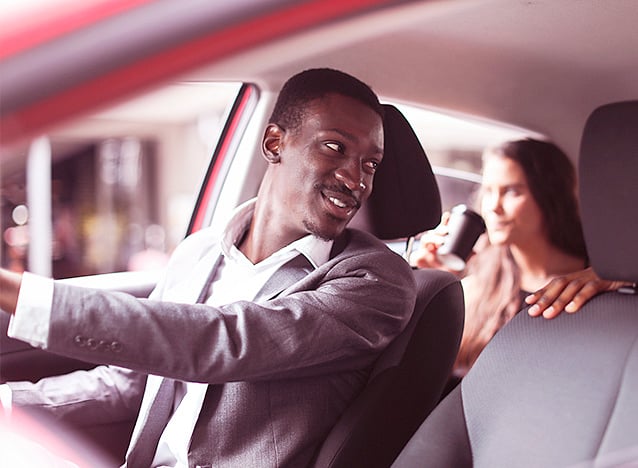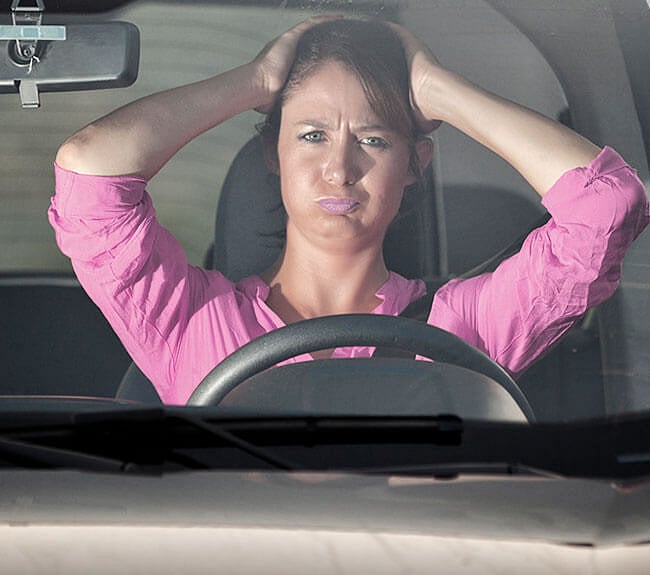
How Drunk Driving Can Affect Your Car Insurance
The National Road Traffic Amendment Bill[1] was introduced to Parliament in May 2020. The legislation takes a hard line on drunk driving. The rule sets zero tolerance for blood alcohol if you are behind the wheel. Discover how this can affect you should you make a car insurance claim and were involved in a drink-and-drive situation.
What does the law say about drunk driving?
The current National Road Traffic Act allows drivers to get behind the wheel after consuming alcohol, provided they are below the blood alcohol limit. When measured with a breathalyser, non-professional drivers’ blood alcohol must measure below 0.24 milligrams per 1 000 milligrams. Professionals, like truck drivers and others who hold professional driving permits, must have less than 0.10 milligrams per 1 000 milligrams on testing.
The new limits were set to reduce these boundaries to less than 0.05 grams per 100 millilitres for normal drivers and less than 0.02 grams per 100 millilitres for professionals when measured using a blood sample. Although the bill alters the rules regarding blood alcohol levels, other parts of the act that deal with driving under the influence – such as the methods of testing or penalties – remain unchanged.
Minister of Transport, Fikile Mbalula, announced that ‘research conducted by the RTMC [Road Traffic Management Corporation] in collaboration with the South African Medical Research Council and the University of South Africa shows that driver alcohol intoxication accounts for 27.1% of fatal crashes in the country’.[2]
In addition, Arrive Alive reports that ‘research indicates that 50% of people who die on the roads have a blood alcohol concentration above 0.05 gram per 100 millilitres.[3]
With these statistics, it’s somewhat unsurprising that the government is taking a firm stance against drunk driving.
Why does drunk driving affect car insurance?
The new rules will affect your relationship with the law and car insurance – and for a good reason. Find out more.
-
Alcohol affects your driving ability
Safe driving requires whoever is operating the vehicle to be alert and able to make split-second decisions in rapidly changing situations. Despite these well-known facts, many people do not hesitate to get behind the wheel after consuming alcohol. Although you may feel fine after one or two glasses of wine, alcohol substantially impacts your driving ability.
Drinking slows your response time, increasing the likelihood of a road accident. And it’s no wonder how regularly and swiftly road conditions change. Just 80 milligrams of alcohol per 100 millilitres of blood add 13% to a driver’s reaction time. So if you’re driving and the car ahead of you brakes suddenly, it will take your brain 13% longer to process what’s going on and prompt you to hit the brakes yourself, creating danger for yourself and other road users.
Besides reducing the likelihood that you’ll see a potential hazard, delayed reaction times also increase drivers’ tendency to become distracted. Alcohol makes your mind less focused, causing you to be less vigilant behind the wheel. When driving, this can affect your ability to stay in your lane, regulate your speed, and heed road traffic signals.
Not only do you have to be aware of what’s happening on the road around you, but you also need to change gears, signal turns and steer. Drunk driving affects your motor skills, including eye, hand and foot coordination, which inhibits your ability to perform these tasks. Signs of reduced coordination, like swaying or the inability to grasp onto objects, make it difficult – and dangerous – to operate a vehicle. Add to this the fact that it blurs vision, reduces the ability to control eye movement and hinders peripheral vision, and it’s easy to see why it’s a terrible idea to drink and drive.
-
How is alcohol metabolised?
Although it typically takes a couple of hours to break down the amount of alcohol in a single serving of wine, a variety of factors affect how quickly the body metabolises alcohol.
For one, the rate you consume alcohol will affect how your body absorbs it. The more you consume in a shorter period, the longer your body will metabolise what you drink. Downing large amounts overtax your body’s ability to absorb and break down the alcohol, forcing your system to shut down. This is when you start to see effects such as lowered inhibitions, reduced motor function, and slurred speech.
Popular drinks like wine, cider, and beer have a high acid content that can cause your digestive system to become irritated when you drink without eating. Without any ‘lining’ to occupy your gut, your body will absorb the alcohol more rapidly, causing the effects to take hold more quickly. The same is true for women.
Women are far more susceptible to the effects of alcohol than men. First, weight impacts how alcohol is metabolised as it influences the space in which liquor can diffuse through the body. As a result, a person who weighs more will likely have a lower concentration of alcohol in their blood from drinking the same amount as a lighter person. As women often weigh less than men, the effects of alcohol are usually more pronounced in ladies.
Additionally, women’s bodies contain proportionately less water and more fat than men’s. Because fat retains alcohol, drinking exposes the organs to higher concentrations of alcohol for longer periods of time. A woman’s body also produces less alcohol dehydrogenase enzyme, which breaks down alcohol before it reaches the bloodstream. Consequently, at the same dosage size, a woman’s blood alcohol level will be higher than a man’s, regardless of differences in body weight or fat percentage. The effect? Moderate drinking for a man borders on heavy drinking for a woman; you can expect alcohol to have roughly double the effect on women as it does on men.
How much alcohol can I drink?
Typically, our bodies metabolise alcohol at a rate of 15 grams per 100 millilitres per hour. This means it will take two hours for a blood alcohol level of 0.02 to reduce to zero.
The table below provides a quick overview of approximate timeframes for metabolising different drinks.
|
Type of alcoholic beverage |
Average time to metabolise |
|
30 ml of whiskey or similar |
1 hour |
|
500 ml of beer |
2 hours |
|
250 ml glass of wine |
3 hours |
Looking at these rates, it’s clear that a sober approach is best if you’re getting behind the wheel. You want to stay on the right side of the law – and your car insurance policy.
How drunk driving affects car insurance claims
Besides criminalising drinking and driving, the National Road Traffic Amendment Bill will have a significant effect on your car insurance.
If you’re under the influence of alcohol while driving a vehicle and are involved in an accident, your insurance provider may legally refuse to honour your car insurance claim. Aside from having the legal right to refuse claims where a driver acts illegally, almost all car insurance companies in South Africa include a clause to this effect in their policies. You could also be met with higher premiums. Or worse, your insurer may choose to cancel your policy.
It’s best to adopt a few zero-tolerance tactics that will help to keep you in the driver’s seat and insured. First for Women suggests the following when it comes to drinking and drive:
-
Drink non-alcoholic or de-alcoholised wines, beers, ciders, and mocktails
-
Use a taxi or e-hailing service instead of driving – be sure to check that the driver is legitimate
-
Arrange for a concierge service to drive you and your vehicle home after you’ve been drinking
-
Nominate a friend to be the ‘designated driver’ for the evening
-
Ask friends or family if you can stay over when visiting and consuming alcohol
These simple strategies will ensure that you keep yourself and other road users safe and provide you with the peace of mind that you’ll be covered in the event of a car accident or collision. Find out How to submit an insurance claim with First for Women.
Get a car insurance quote online with First for Women
First for Women offers car insurance specifically designed for women. Get car Insurance quotes online today.
Sources:
[1] Golegal.co.za - National Road Traffic Bill on track
[2] EWN - Drunk driving accounts for 27.1% of fatal crashes in SA
[3] Arrive Alive - Drunk driving and road safety
Disclaimer: The information in this article is provided for informational purposes only and should not be construed as financial, legal, or medical advice. First for Women is a licensed non-life Insurer and FSP. T’s & C’s online.

We Have Great
Insurance Products
At 1st for Women we know that each
woman is an individual who has
different needs.
More Content
Most popular

Insurance
How to Submit an Insurance Claim with First for Women?

Insurance
Your Car Insurance Claim Can Be Rejected if You Do These 10 Things
Latest posts
Related Posts


